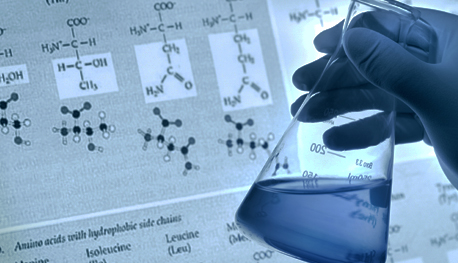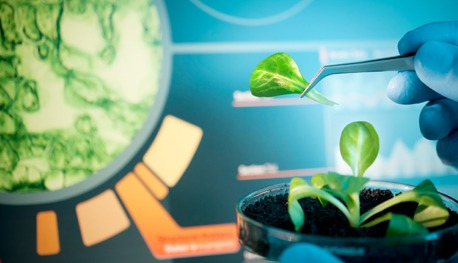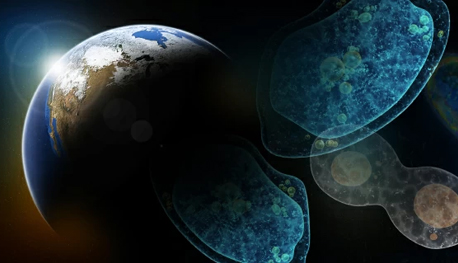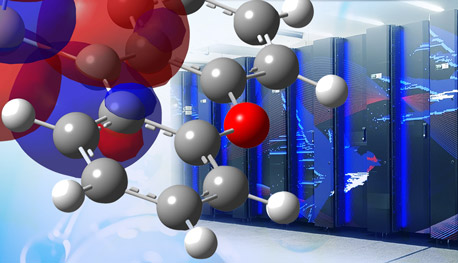Education
Chemical Science and Engineering Undergraduate MajorCurriculum
Specialized education built on a broad foundation
— a solid footing for researchers and engineers
Students in their first year receive a thorough grounding in basic sciences such as chemistry, mathematics, and physics. When students advance to their second and third year, they acquire essential knowledge in the areas of chemical reaction engineering, inorganic and organic chemistry, and physical chemistry, which are courses required to proceed to core courses. They then go on to build a systematic and extensive knowledge of the discipline by taking electives in applied molecular chemistry, chemical system engineering, polymer science, and technology courses. Through required experiment courses in chemistry, students can gain a thorough understanding of basic and practical experiment skills. In addition, students are able to develop their creative skills and ability to conduct research by taking on their Independent Research Project.
-
1st Year
- 100-Level Courses
-
Students in their first year of undergraduate studies receive basic education that centers on Institute-wide compulsory courses regardless of their discipline. The 100-level courses are designed to teach common, basic skills that are required of science and technology students. The aims of these courses are to provide knowledge and cultivate versatile intellect necessary for studying at the Institute.
-
2nd Year
3rd Year- 200-Level and 300-Level Courses
-
Students who complete their 100-level courses advance to study their undergraduate major. Courses at the 200- and 300-levels specific to the Chemical Science and Engineering Major are taken in accordance with the curriculum.
-
- 200-Level Courses
- Students cover the basics in inorganic and organic chemistry, physical chemistry, and quantum chemistry to prepare themselves for specialized subjects in chemical science and engineering.
-
- Applied Molecular Chemistry Courses
- Students systematically study applied molecular chemistry elective courses.
-
- Chemical Engineering Courses
- Students systematically study chemical system engineering elective courses.
-
- Polymer Science Courses
- Students systematically study polymer science electives courses such as polymer synthesis, polymer structure, physical properties and functions of polymers, and polymer processing.
-
- Technology Courses
- Students broadly cover elective course subjects such as data analysis for chemical engineering, applied mathematics for engineers, introduction to geochemistry, instrumental analysis, radiation chemistry, electrochemistry, and nuclear chemical engineering.
-
- Laboratory Courses
- Students learn a wide range of experimental techniques through comprehensive laboratory courses in the chemical science and engineering field.
-
-
4th-year
- 200-Level and 300-Level Courses
-
At the final stage of the 300-level is the Independent Research Project (equivalent to the Undergraduate Thesis Research that was in place previously). The project is intended to serve as a capstone for students to consolidate and reinforce all of the skills acquired in their major. Furthermore, they may choose to enroll in the Advanced Independent Research Project. The purpose of this course is to enhance student interest in scientific and technological research that began with the Independent Research Project, as it provides the opportunity for them to actively engage in science- and technology-related activities.
* The timeline depicts a standard case where students complete their bachelor's degree program in four years.
-
Entrance Examination
Students need to pass an entrance exam to advance from a bachelor's to a master's program. To advance from a master's to a doctoral program, students must pass an advancement assessment.
-
Graduate Majors
Master's Program
Doctoral Program- 400-Level, 500-Level, and 600-Level Courses
-
Students who complete the Chemical Science and Engineering Undergraduate Major may continue to study the same discipline in more depth at the graduate major level. There are also closely related interdisciplinary graduate majors — Energy Science and Informatics, Science and Technology for Health Care and Medicine, Nuclear Engineering, and Earth-Life Science, and Materials and Information Sciences — to which students may advance.
-
- Department that offers this graduate major
-
- Chemical Science and Engineering
-
- Departments that offer this graduate major
-
- Chemistry/
- Mechanical Engineering/
- Electrical and Electronic Engineering/
- Materials Science and Engineering/
- Chemical Science and Engineering/
- Computer Science
- Transdisciplinary Science and Engineering
-
- Departments that offer this graduate major
-
- Departments that offer this graduate major
-
- Mechanical Engineering/
- Electrical and Electronic Engineering/
- Materials Science and Engineering/
- Chemical Science and Engineering/
- Transdisciplinary Science and Engineering
-
- Departments that offer this graduate major
-
- Earth and Planetary Sciences/
- Chemical Science and Engineering/
- Life Science and Technology
-
- Departments that offer this graduate major
-
- Physics/
- Chemistry/
- Electrical and Electronic Engineering/
- Materials Science and Engineering/
- Chemical Science and Engineering/
- Computer Science/
- Life Science and Technology/
- Transdisciplinary Science and Engineering
-






